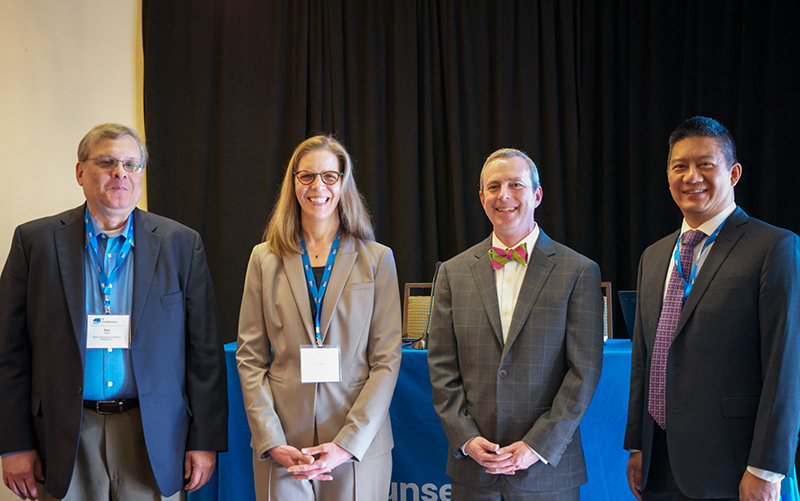As many legislatures across the country go into recess, it is time for Bio.News’ mid-year state policy roundup. In the realm of sustainability and agriculture, legislative initiatives affecting biotech abound.
We talk to BIO’s Vice President of State Government Affairs, Patrick Plues, to discuss three things to watch when it comes to legislative action affecting agricultural biotech.
Clean fuel standards
“We are seeing an uptick in interest by states to look at clean fuel options and passing clean fuel standards,” says Plues.
Indeed, as climate change has presented us with a world that becomes less and less recognizable by the year, the need for clean, sustainable, environmentally friendly fuel options is paramount. It is lucky, then, that we are seeing more and more initiatives in state legislatures to pave the way toward clean fuel.
“This year, Minnesota created a clean transportation fuels standard task force to look at creating a clean fuel standard,” explains Plues. “With this year so far, there are now clean fuel standard statutes in place in Washington, Oregon, and California. We’ll be advocating again for legislation next year in New York and New Mexico. There’s also legislation pending in Massachusetts, Michigan, and Illinois—all of which are full-time legislatures that meet year-round, so the work on legislation there will continue this year.”
Plus, clean fuel initiatives, despite historic partisanship, seem to be an issue on the state level that is bringing politicians together.
“It’s encouraging that legislators from both parties are interested in this type of legislation and it creates a market for many companies that are in the biofuel space,” added Plues. And clean fuel legislation is expanding into one important area in particular: sustainable aviation fuel (SAF).
According to the International Energy Agency, “in 2022, aviation accounted for 2% of global energy-related CO2 emissions, having grown faster in recent decades than rail, road or shipping. As international travel demand recovers following the Covid-19 pandemic, aviation emissions in 2022 reached almost 800 Mt CO2, about 80% of the pre-pandemic level.”
“I think another interesting biofuels issue is sustainable aviation fuel (SAF),” explains Plues. “Much of it started because of some tax provisions in the federal Inflation Reduction Act that incentivize the use of SAF, and some states are picking up on that. Six states—Colorado, Illinois, Minnesota, Montana, and North Dakota, Washington—enacted legislation in 2023 incentivizing the use of SAF, which is a step in the right direction not only for the environment but also for building up this industry even more and helping the aviation industry achieve its climate reduction goals.”
GMO labeling
GMO labeling has been a sensitive and often misunderstood issue by both the American public and politicians seemingly since its inception. As such, legislation around this topic is as important as ever for the biotech industry to pay attention, and respond, to in an informed way.
“We are still seeing GMO-labeling legislation in the states,” says Plues. “The federal government in 2016 passed legislation establishing a national GE food disclosure standard that also preempted state and local governments from enacting their own GMO labeling requirements. However, some states still want to go beyond the federal legislation.”
In Maine this year, a GMO-labeling bill, LD 682, which sought to require the labeling of packaged foods using genetically modified organisms and a review process for the labeling of packaged foods that don’t contain genetically modified organisms, died.
Yet there are two pending pieces of legislation in New Jersey and Puerto Rico to keep an eye on. New Jersey’s S. 3098 aims to require labeling of foods containing genetically engineered material. Introduced in September 2022, the legislation remains active. And Puerto Rico’s HB 735 aims to establish labeling requirements for genetically engineered seeds and food containing genetically engineered ingredients.
Life sciences and the economy
It has been no secret recently that smart public policy is critical for a thriving biotech industry. As Rachel King told Bio.News during the 2023 International BIO Convention in relation to BIO’s annual Best Practices Report, “At every level of government, public policy has a profound impact on the bioscience ecosystem and its ability to innovate and grow.”
It also is critical to job creation and economic growth.
“We do a lot of policy work around economic development and looking at how states could implement different policies to build and strengthen the life science clusters in their state,” says Plues.
“Almost every state has a life science industry cluster. Some states are larger than others, but states are generally very active in attracting the industry as job creators in their states. We work on advancing legislation for a variety of things that will help the industry grow and sustain. For example, there was a bill this year in Connecticut on R&D tax credits. There is a bill in Maine regarding biomanufacturing. And Maryland passed an infrastructure grant bill that can help grow the industry. Right now, I think there are 11 bills that we have seen this year that focus on economic development of the life sciences industry, and that create incentives that build and strengthen the life science industry cluster in a given state.”
One encouraging example this year was in Rhode Island. The state’s 2024 budget contains a $45 million investment in the life sciences sector that will help support the development of incubator space in the state and a program to invest in the biosciences industry in conjunction with the creation of the Rhode Island Life Science Hub.
When it comes to sustainability, the economy, and how the biotech industry can help solve historic challenges in the US and internationally, state legislatures are starting to pay attention to what biotech can teach them and help them achieve.




